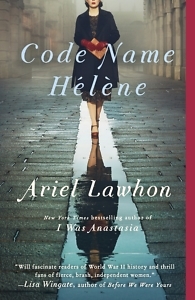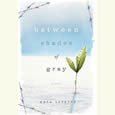Legendary Lady
Nashville author Ariel Lawhon’s latest is a masterful novel about an unsung World War II heroine
World War II heroine Nancy Wake should be so widely celebrated that whole bevies of schoolgirls dress up as this brave member of the French Resistance for Halloween. It’s a mystery — and a travesty — that she isn’t. But perhaps New York Times bestselling author Ariel Lawhon’s novel Code Name Hélène will finally bring her the recognition she deserves.

Lawhon’s exhaustively researched and vividly woven historical novel introduces readers to Wake, who was such a formidable force of nature that she led approximately 1000 French Resistance fighters, became a critical Allied asset, and eluded the Nazis so effectively that she inspired the nickname “The White Mouse.” (The White Mouse is the title of Wake’s 1985 autobiography, currently out of print.)
In the 1930s, Wake was an Australian expat living in Paris and had brilliantly bluffed her way into a journalism gig stringing for the European branch of the Hearst Newspaper Group. Well before the start of the war, Wake documented the depravity and revolting cruelty of Adolf Hitler’s private militia known as the Brownshirts. On assignment in 1934 in Vienna’s Old Square, she and her photographer witnessed the paramilitary group publicly and viciously torturing an old Jewish shopkeeper, something the Brownshirts apparently liked to do on Fridays before the beginning of Shabbat.
In the novel, as Hitler’s men burn the contents of Jewish shops in a massive bonfire, the Wake character describes an old woman “tied spread-eagle to the massive waterwheel. They turn her round and round as she cries and screams. Her long salt-and-pepper braids swish back and forth across her shoulders as her shawl drags on the ground beside her” before a Brownshirt attacks further. “There is a single crack, like the sound of a breaking rock, and then a red stripe opens across the old woman’s back, splitting her dress diagonally, splitting the air with her screams.”
Wake had to fight to get the article published, but when it finally appeared in the New York Evening Journal — her stories often were published in American newspapers — it wasn’t bylined. Failure to credit women journalists wasn’t an oversight but instead a purposeful and unfortunate reality for women of the time, one the hard-drinking, foul-mouthed Wake character in the book characterizes as “bullshit.”
The fictional Wake’s response is no doubt true to life. Lawhon writes in her author’s note that the real Wake used profanity “Liberally. Unapologetically. And with flair. It was one of her greatest weapons in gaining dominance and respect with the Maquisards of the French Resistance. If she was to lead those men, she could not appear weak, delicate, or easily offended.”
The author’s note also painstakingly details the areas in the novel where any creative license breaks from Wake’s own accounts, those of her biographers, or established history. Most of these are benign, meant to avoid disrupting the narrative. Others include educated guesses about, for example, the shade of Wake’s lipstick — Victory Red, an Elizabeth Arden product the U.S. military commissioned for female service members — which she continued to wear like “armor” even during the prolonged deprivations of war.
 But, Lawhon writes, “some of the dialogue and many of the descriptions of people and events” are taken directly from Wake’s autobiography, The White Mouse. And the most notable and important aspects of Wake’s life are mostly unembellished in Code Name Hélène, which is as much an epic love story as an engrossing narrative of an unlikely anti-Nazi combatant.
But, Lawhon writes, “some of the dialogue and many of the descriptions of people and events” are taken directly from Wake’s autobiography, The White Mouse. And the most notable and important aspects of Wake’s life are mostly unembellished in Code Name Hélène, which is as much an epic love story as an engrossing narrative of an unlikely anti-Nazi combatant.
Wake got her start as an operative after her courtship and 1939 marriage to the French industrialist Henri Fiocca, with whom she lived briefly and happily in Marseille. When the war began and her husband was called to fight, she drove an ambulance to ferry the wounded. And once France fell to Nazi occupation, she aided the escape network of British officer Ian Garrow, whose release she arranged from a concentration camp by bribing a guard. Ultimately, her husband returned from the war, but the Gestapo discovered her Allied loyalties, forcing Wake to flee the country into Britain and leave her beloved husband behind.
It was there that she joined the Special Operations Executive, a group charged with conducting sabotage and intelligence gathering in occupied Europe against Germany and its Axis partners. It was a crucial resource for local Resistance movements like the French Maquis, with whom Wake was embedded after parachuting with the SOE into France in 1944.
The organization trained her extensively, and Wake’s accomplishments in the pursuit of Nazi defeat were astonishing: She once biked 500 kilometers over the course of 24 hours to deliver a message; she killed a Nazi soldier with her bare hands; she presided over the firing-squad execution of Resistance fighters who kidnapped and raped women. And as Lawhon notes, there were many female spies during World War II, but Wake represented one of a very small number of female military leaders.
Lawhon has proven herself a master at her craft, and she does readers a great service with Code Name Hélène, which she penned after a friend suggested a few years ago that she write about Nancy Wake. Like many of us, the author had not heard of the Aussie legend before 2015. “In all my years researching and writing historical fiction, I have never come across such a bold, bawdy, brazen woman,” she writes.
Wake died in 2011, only belatedly being awarded the decorations and distinctions she so justly deserved, including from France, the UK, and the United States. Lawhon writes that when Wake was first recommended for commendation in Australia, the government refused because she had not fought for the Australian Army. When it backpedaled years later, Wake was famously quoted as saying, “I told the government they could stick their medals where the monkey stuck his nuts.”
[This article originally appeared on March 24, 2020.]

Liz Garrigan is the former editor of the Nashville Scene and Washington City Paper. She lives in Bangkok, Thailand.


